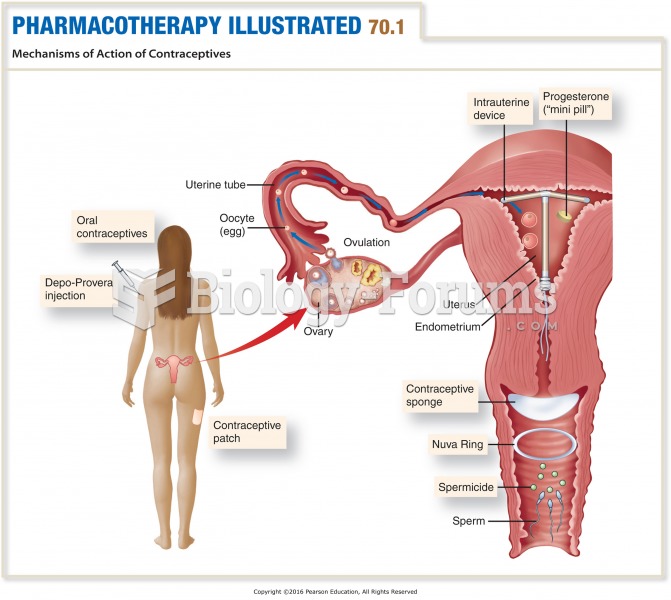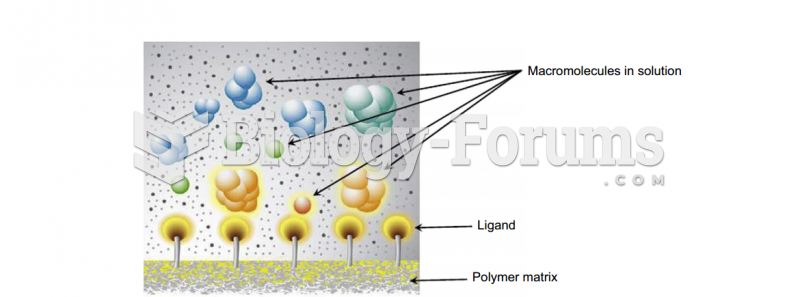|
|
|
The average older adult in the United States takes five prescription drugs per day. Half of these drugs contain a sedative. Alcohol should therefore be avoided by most senior citizens because of the dangerous interactions between alcohol and sedatives.
Many supplement containers do not even contain what their labels say. There are many documented reports of products containing much less, or more, that what is listed on their labels. They may also contain undisclosed prescription drugs and even contaminants.
Earwax has antimicrobial properties that reduce the viability of bacteria and fungus in the human ear.
Aspirin is the most widely used drug in the world. It has even been recognized as such by the Guinness Book of World Records.
There are over 65,000 known species of protozoa. About 10,000 species are parasitic.







